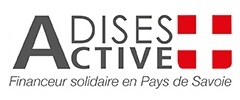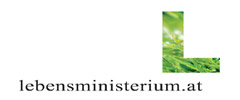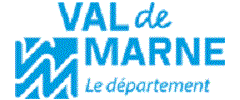Sanitation
One of the four key thematic areas of the ELA program
12.03.2009 |Gero Fedtke
Sustainable SANITATION solutions
Urine Diverting Dry Toilets (UDDT) have been built for households, schools, and a kindergarten. Household toilets have always been constructed by house-owners themselves; costs for building materials were shared between the project and the house-owner. The same principle applies to schools.
School toilets
In northern Armenia, the NGO Lore Eco Club from the city of Stepanavan knew a school that was not having a toilet at all. Teachers and children, especially girls, were not drinking during school time. They sometimes had to go home early to use the toilet, missing lessons. The quality of teaching and learning severely suffered from this. A low-cost outdoor UDDT was built; the labor completely supplied by the community. Because the toilet is located on a hill, no staircase was needed and it is easily accessible for handicapped pupils. Parents participated in the construction. Being thus well acquainted with the technology, many are building Dry Toilets for their homes, much closer to the houses than the formerly used put latrines.
Although UDDT do not emit bad odors if properly used, many to whom the technology is new are skeptical and prefer to build them separately. The director of the village school in Mirzake, Uzgen district, southern Kyrgyzstan, was invited to visit UDDT built by the NGO ULGU. Being convinced of the technology, the school decided to construct a new toilet as an extension of the existing building. It can now be entered from inside. As in Armenia, teachers, parents, and older schoolchildren built the toilet with their own hands.
In Criscauti village in norther Moldova, supported by the NGO Ecotox, the local kindergarten built their first UDDT even inside the existing building. Many people doubt that little children of 3-4 years can use UDDT correctly Ė the kindergarten in Criscauti proves they can!
Improved sanitary conditions and energy saving
Kommuna village, in the southwest of Kyrgyzstan, lies in a district difficult to access. The local organization Sarydobo not only constructed a new toilet for the village school. They also improved the schoolís thermal insulation, using mostly locally available environmentally friendly materials - saving more than 50% energy needed for heating. Through the Bishkek-based NGO UNISON, the needed knowledge was transferred to local masters and constructors. Now, the buildings serve as a and as an ecological demonstration centre for the district. displaying both ecological sanitation and energy efficiency.
Household Toilets for users
Better school toilets not only improve the situation of teachers and pupils, they also raise the interest and demand of parents and neighbors. Each ELA partner uses its own method to make the concept known and approach people to become the pioneers in sustainable sanitation. With success: the interest in and demand for Dry Toilets in the projects areas is high. Breaking a taboo, openly discussing an uneasy topic, all ELA partners not only talk about technical solutions, but also about hygiene, the links to human and environmental health, the importance of the right operation and maintenance.
For the farmers associated to the NGO ULGU, the fertilizer obtained from UDDT is the starting point. Their demonstration fields give proof of its effectiveness. The ELA partner Habitat for Humanity Kyrgyzstan included the new sanitation solution in its program to fight housing poverty. The organization also offers an effective system for financial sustainability: families constructing toilets with Habitatís support receive an interest-free loan they have to pay back over three years. The money is paid back to a revolving fund used for constructing more toilets.
Special equipment needed such as diverting toilet seats has so far to be imported or made by hand from available materials, or e.g. from cement with the help of a mould.
The ELA partners of the South Caucasus decided to concentrate seat production in the hands of the NGO RCDA. One person had a full time job casting more than 100 cement toilet seats in the demonstration center in Misaktsieli near Tbilisi, the Georgian capital. In addition, a company started the industrial production of high quality ceramic seats. This is a big step for up-scaling Ecological sanitation. The seats are available now in Georgia and neighboring countries.
Contact:
gero.fedtke@wecf.eu
This article is part of the ELA annual report 2008.
Related News
Meet the Winners of the Gender Just Climate Solutions Award at COP24
On the 70th anniversary of the Universal Declaration of Human Rights, we awarded Gender Just Climate Solutions Winners at the climate negotiations in Katowice, Poland
11.12.2018
Invitation: Gender Just Climate Solutions Award 2018
10 December, COP24 Katowice
04.12.2018
Getting to the Future We Want
4-7 November, Brussels: European Environmental Bureauís (EEB) Annual Conference
12.11.2018
GoodFood4All
WECF and partners all over Europe start GoodFood4All Campaign
06.11.2018
#Ruralwomen: join our Women2030 campaign!
15.10.2018






































